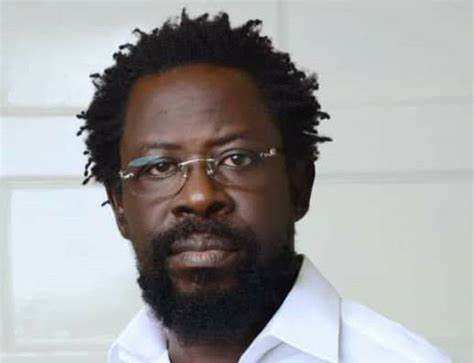About 93 civil society organisations have condemned the treatment of activist lawyer Dele Farotimi and called for his release from detention.
Prominent among the CSOs that signed a statement made available to the media are Global Rights, Yiaga Africa, The Kukah Centre, International Press Centre (IPC), Cleen Foundation, Accountability Lab, Amnesty International Nigeria, BudgIT, and Media Rights Agenda, among others.
They condemned the arrest, detention, persecution, and torture of the human rights activist. Additionally, they faulted the treatment of the case involving Farotimi as a criminal rather than a civil one.
They wrote: “While the court sitting in Ekiti has granted him bail, we maintain that the manner of his arrest was an aberration and that Mr Farotimi should never have been subjected to the criminal justice process.
Additionally, the prohibitive terms of bail for what is supposed to be a misdemeanour raise the real possibility that Mr Farotimi’s right to be tried – as required by Nigeria’s constitution – by a court constituted in such a manner as to guarantee its independence and impartiality cannot be guaranteed.”
They pointed out many troubling aspects of Mr Farotimi’s encounter with Nigerian law enforcement, beginning with the “unnecessarily aggressive and confrontational manner in which the arrest was effected.”
They decried the unprofessional and violent nature of the police officers, captured on CCTV footage, who crossed state lines to arrest him.
“The officers were not dressed in uniform and could have passed as armed thugs. They also threatened Mr Farotimi’s staff for no reason after unlawfully seizing their phones. The brutal manner of his arrest suggests the apprehension of a bandit on a most-wanted list rather than a publicly accessible human rights lawyer.”
According to them, the reason given was even more troubling than the manner of the arrest.
They went on: “Before he was unlawfully ‘picked up’ from his office on the 2nd of December, Mr Farotimi had foretold the Nigerian public of his impending arrest. In a press release from his office a day before, he stated that the police had invited him to answer for specific claims he had made in his most recent book, Nigeria and its Criminal Justice System.
“Mr Farotimi went on to state that his impending arrest was being orchestrated by two powerful individuals, Tony Elumelu and Chief Afe Babalola CFR, SAN, who were displeased with the unflattering depictions Mr Farotimi had made of them in his book. Rather than challenging his claims by suing him for defamation in civil court, they decided to wield their enormous influence to have him arrested, detained, and charged to court for a crime that does not exist in the jurisdiction of his arraignment.”
The CSOs contended that defamation is a civil matter and should be treated as such.
“Section 4 of the Police Act 2020 forbids the police from entering civil matters. In an orderly society built on the rule of law, those contending the veracity or otherwise of the claims Mr Farotimi made in his book or who feel he has defamed them in any of his writings or speech would seek justice in the civil court, where Mr Farotimi would have had to defend his claims or provide redress should he have been found to have maligned their character.
“When a person feels that his or her reputation has been tarnished, the law creates opportunities for redress in civil court.”
As Nigeria’s Supreme Court pointed out in 2021, criminal defamation was invented by the ‘Star Chamber’ in late Mediaeval England. That is why it has been written out of the law in most states in Nigeria and many other Commonwealth countries. It should have no place in the books of a Republic.
“Another troubling aspect of this saga is that the police charged Mr Farotimi before a Magistrate Court in Ekiti State on 16 counts of criminal defamation. However, the crime of criminal defamation is unknown to Ekiti State’s Criminal Law of 2021, which currently spells out the criminal law regime in Ekiti State. It also does not exist in the Criminal Code of Lagos, where Mr Farotimi resides, works, presumably wrote his book, and was abducted.
“Our Constitution provides in Section 36(12) that ‘subject as otherwise provided by this Constitution, a person shall not be convicted of a criminal offence unless that offence is defined and the penalty, therefore, is prescribed in a written law.’”
They also flayed the police for charging Farotimi before the Magistrate Court for a “crime” that the court did not have jurisdiction to entertain, describing it as an abuse of legal processes.
They made four demands: That the charges against Mr Farotimi be immediately dropped and he be released without preconditions; that all laws supporting criminal defamation in Nigeria’s criminal jurisprudence be immediately repealed, and cases initiated under those laws struck out by the courts; that those who feel Mr Farotimi wrongfully tarnished their reputations with the claims he made in his book should seek redress in civil court and that the Inspector-General of Police ensure law enforcement agents cease being a willing tool of the powerful to oppress law-abiding citizens.
